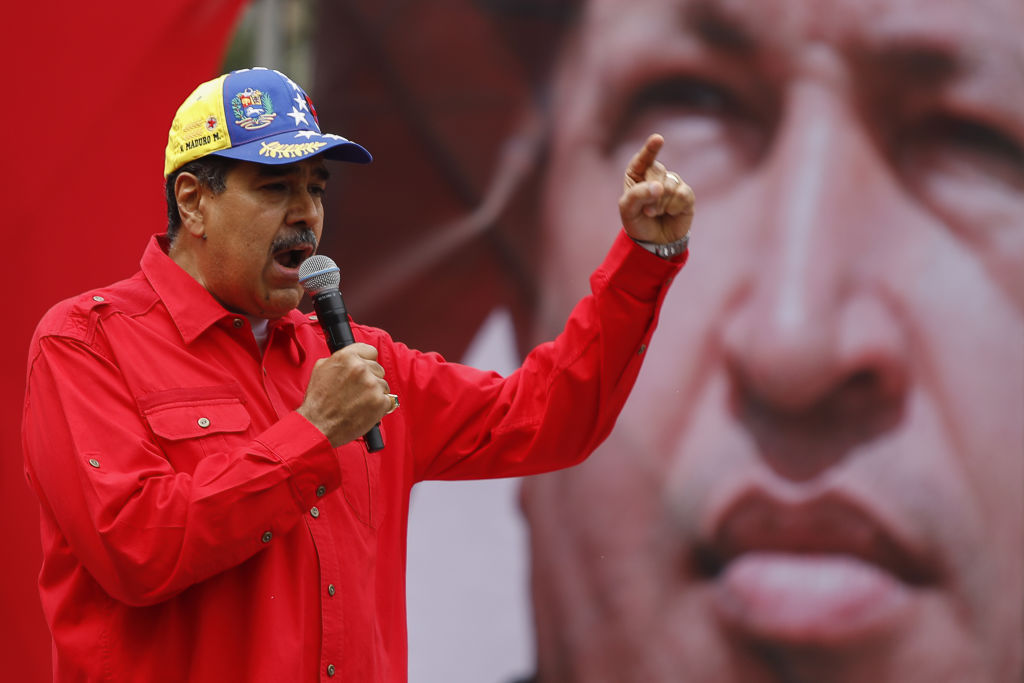
Argentine courts are fully competent to investigate, prosecute and criminally punish the perpetrators of crimes against humanity committed in Venezuela, Amnesty International said in a submission filed on 26 February 2024 before the National Criminal and Federal Correctional Court No. 2 in Argentina.
In a brief known as amicus curiae (friend of the court), the organization presented legal arguments on universal jurisdiction and crimes against humanity committed in Venezuela that explain why human rights violations remain in impunity.
“Amnesty International firmly believes in the enormous potential the use of universal jurisdiction in Argentina holds to protect the rights to truth, justice and reparation of victims of international crimes committed in Venezuela. The organization’s brief is a contribution towards decisive and independent progress in the investigation into crimes against humanity committed in Venezuela,” said Ana Piquer, Americas director at Amnesty International.
Amnesty International firmly believes in the enormous potential the use of universal jurisdiction in Argentina holds to protect the rights to truth, justice and reparation of victims of international crimes committed in Venezuela. The organization’s brief is a contribution towards decisive and independent progress in the investigation into crimes against humanity committed in Venezuela
Ana Piquer, Americas Director at Amnesty International
In this sense, in its brief the organization outlines how “the regulation of universal jurisdiction in article 118 of the Constitution of the Argentine Nation, domestic court precedents, applicable international law, and the classification of the crime in this case as against humanity, make it clear that the principle of universal jurisdiction is applicable even though the events have occurred in foreign territory and involve foreign active and passive subjects.”
The lawsuit filed before the Argentine justice system in June 2023 by victims of crimes against humanity and the Clooney Foundation for Justice has its basis in the lack of an independent judiciary in Venezuela. In its submission, Amnesty International reiterates how “Venezuela’s justice system has demonstrated that it has neither the will nor the capacity to genuinely and adequately investigate, prosecute and criminally punish the perpetrators of serious human rights crimes in its domestic jurisdiction, much less those who hold high positions in the lines of command.”
Investigations by the UN and the Office of the Prosecutor of the International Criminal Court (ICC), – as well as Amnesty International – have denounced the existence of sufficient grounds to reasonably hold that crimes against humanity have been committed in Venezuela. The criminal investigation carried out by the Office of the Prosecutor of the ICC is complementary to the one being carried out by the Argentine court. In the case of crimes against humanity committed in Venezuela, the organization argues that Argentina is competent under the principle of universal jurisdiction and can proceed in the investigation, prosecution and criminal punishment of those responsible.
The investigation opened by the Argentine judiciary falls within a context of growing repression by the Venezuelan authorities, including the disappearance and detention of human rights defender Rocío San Miguel. While there are international scrutiny mechanisms with a mandate over Venezuela, such as the UN Fact-Finding Mission (FFM), the Venezuelan state has not cooperated with this mechanism nor has it implemented the recommendations made by the FFM and other human rights protection mechanisms. On 15 February 2024, the government announced the expulsion UN Office of the High Commissioner for Human Rights staff from the country, in an effort to continue evading scrutiny and accountability.
“We are witnessing a new spike in human rights violations and crimes under international law in Venezuela. Once again, we are seeing the daily use of arbitrary detentions, enforced disappearances, absence of minimum fair trial guarantees, and constant attacks on organizations and people defending human rights. While the human rights crisis in Venezuela is at its peak, there is no better opportunity to stop the perpetrators of these crimes and violations and apply the full force of international criminal law to provide justice for the victims. The Argentine justice system has the opportunity to be central figures in this effort,” said Mariela Belski, executive director of Amnesty International Argentina.
We are witnessing a new spike in human rights violations and crimes under international law in Venezuela. Once again, we are seeing the daily use of arbitrary detentions, enforced disappearances, absence of minimum fair trial guarantees, and constant attacks on organizations and people
defending human rightsMariela Belski, executive director of Amnesty International Argentina
Further information
International law is consistent in empowering all states to, should enough evidence exist, investigate and punish those responsible for crimes under international law. In some cases, this power becomes an obligation under international law when the alleged perpetrator is present in a territory under the jurisdiction of another state. According to the organization, the principle of universal jurisdiction has been recognized by at least 163 states – more than 85% of the countries in the world.
Amnesty International research on universal jurisdiction found that, between the end of World War II and 2011, at least 20 states conducted investigations, initiated trials or completed trials based on universal jurisdiction for the most serious crimes. These states include: Argentina, Australia, Austria, Belgium, Canada, Denmark, Finland, France, Germany, Israel, Mexico, the Netherlands, New Zealand, Norway, Paraguay, Spain, Senegal, South Africa, Switzerland, Sweden, the United Kingdom and the United States.
In the case of Argentina, this research highlighted the so-called “Argentine complaint“ initiated in 2010 into crimes under international law perpetrated in Spain during the government of Francisco Franco, and the investigation opened in 2021 on the possible genocide of the Rohingya people in Myanmar (former Burma).
For further information or to arrange an interview, please contact Carlos Mendoza: +52 1 55 4145 7003, [email protected], or Laura Durán: +54 9 11 4194-3570 [email protected]
This post was originally published on this site be sure to check out more of their content.








